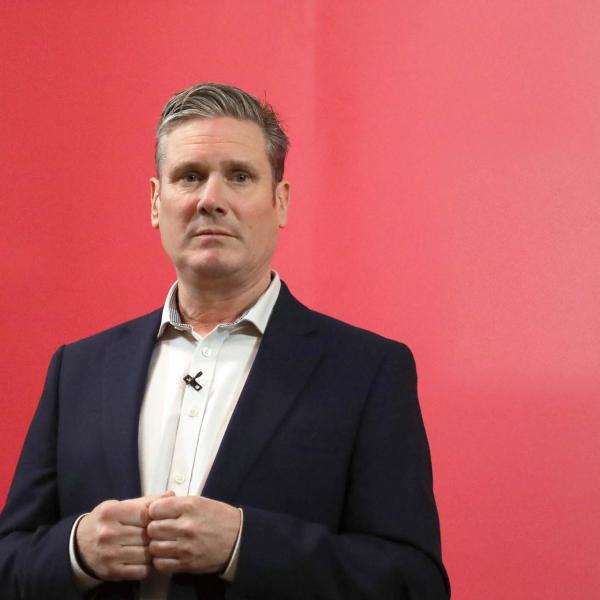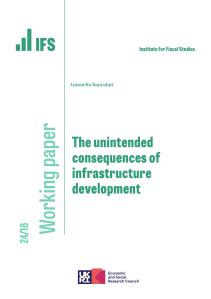Liz Truss and Kwasi Kwarteng have two big and important things right. First, growth matters. We should be, and should have been, far more focused on securing it. Second, redistribution isn’t everything, and it is not the yardstick against which every policy should be judged.
The first point should be obvious. It is a lack of productivity growth that has led to the stalling of earnings and living standards, to the younger generation falling behind their parents economically and to the lack of money available for public services. To a large extent, that lack of growth has been a choice. We have chosen not to invest in education, liberalise the planning system or stay in the European single market. The combined cost of this is huge.
Simply cutting tax won’t fix the problem, but we saw some hopeful signs in the fiscal statement on Friday that Kwarteng, the new chancellor, will take other elements seriously. The clear signal that the planning system will be overhauled was most welcome, though it is worth recalling that Boris Johnson was equally committed to reform right up to the point at which he lost a by-election. There are trade-offs. We have been on the wrong side of those trade-offs for far too long.
The reductions in stamp duty were also helpful, though surprisingly modest in the context of such big changes elsewhere. Oddly, this was the one area in which the redistribution yardstick did seem to be playing an important role. The main benefits of the reform will go to first-time buyers and those buying and selling lower-priced properties. But this is a case in point. The immediate impact by income or wealth decile is not the most important issue. Stamp duty rates are much higher for more expensive houses. This is a bad and damaging tax that gums up the housing market, hinders labour mobility and reduces economic efficiency. Bigger cuts would have been a good thing, even if they had benefited the better off.
The other tax policy decisions were clearly made with no eye to concerns about redistribution. The cut to national insurance contributions and, especially, the abolition of the additional 45 per cent rate of income tax clearly benefit the better off the most. When Rishi Sunak, as chancellor, announced the increase to national insurance contributions, I was among many others in expressing concerns. It would have been both more economically efficient and more equitable to have increased income tax. Yet many have complained that returning contributions to their previous level is regressive. That is true. It benefits higher earners more, both in cash terms and proportionally, than lower earners. It benefits the poorest not at all.
However, that complaint can be based only on a presumption that the tax system as of last year was not progressive enough and that, imperfect as it was, Sunak’s national insurance increase improved the system because it made it more progressive. That is not self-evidently true. It is not, and cannot be, the case that every move to greater progressivity is an improvement. There comes a point at which that becomes inefficient, by damping incentives, and inequitable, by not rewarding skills and hard work. If, like Kwarteng, you believe — wrongly, in my view — that a tax rise was unnecessary, then returning to the previous status quo must be a defensible policy.
The big surprise in this not-so-mini-budget, though, was the abolition of the 45 per cent additional rate of income tax. That directly benefits the 600,000 or so people — just over 1 per cent of adults — with incomes over £150,000. The cash benefit for the very richest is very large. To make it into the top 0.1 per cent you need an annual income of about £600,000. Members of that fortunate elite will benefit to the tune of more than £20,000 each.
As with most of what was announced, this policy is completely at odds with the position of all the Conservative chancellors since 2010. Yes, George Osborne reduced the top rate from 50 per cent to 45 per cent, but otherwise he and his successors followed a policy of gradually, quietly — almost surreptitiously — putting the squeeze on the highest earners. The point at which the top rate comes into force, £150,000, was never indexed for inflation, with the result that almost three times as many people pay it today as was the case when it was introduced in 2010.
Kwarteng said that he was simply taking the system back to where it was for almost the whole of the New Labour period of government. In fact, the removal of most pension relief for top earners will leave many of them paying more tax than they would have done in those years between 1997 and 2010. And while there is much uncertainty, if Treasury estimates are right the fiscal cost will be modest, at about £2 billion a year. That’s a lot less than the £6 billion it would cost if nobody changed their behaviour. The betting is that many of these top earners will put less effort into managing their tax affairs if the top rate is lowered.
So, the cost is likely to be small. But so are the likely benefits. There really is little convincing evidence that this will make much difference to economic growth. The income distribution in the UK is unusually wide by international standards, and the richest in the UK are already considerably further ahead of the rest of the population than is the case in almost any other comparable country. The incentives to climb to the top of the income ladder are already very clear indeed.
As I said before, redistribution is not the only yardstick by which policy should be measured. But setting out to further increase the gap between the top earners and the rest suggests that it is not even one of the yardsticks for which our new chancellor will be reaching.
This article was first published in The Times, and is reproduced here with kind permission.










